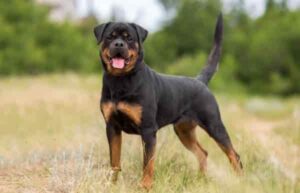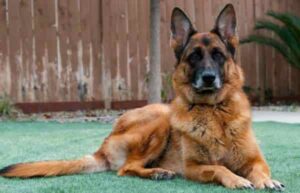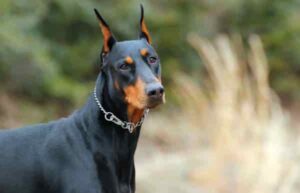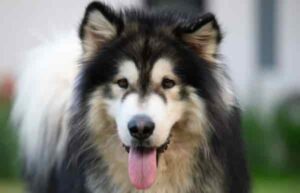Top 5 World’s most dangerous Dogs
The world of canine companionship is rich and diverse, with countless breeds offering unique characteristics, temperaments, and even culinary preferences. Amidst this diversity, discussions about dangerous dog breeds have been pervasive, often clouded by misconceptions and stereotypes.
This article aims to delve into the complexity of breed-specific behaviors, debunk myths, and emphasize the pivotal role of responsible ownership and training. Additionally, we’ll explore the culinary inclinations of these fascinating companions.
The Myth of Inherent Aggression: Unraveling the Truth
One of the most pervasive misconceptions is the notion of inherent aggression within certain dog breeds. It’s crucial to understand that generalizing an entire breed as dangerous oversimplifies the intricate interplay of genetics, upbringing, and individual temperament. Each dog is a unique individual, influenced by a variety of factors.
The prevalent belief in the existence of inherent aggression within specific dog breeds is a deeply ingrained misconception that warrants thorough examination and clarification. The oversimplification of labeling an entire breed as inherently dangerous neglects the intricacies involved in shaping a dog’s behavior. It is imperative to recognize that the disposition of a canine companion is the result of a complex interplay of factors, including genetics, upbringing, and individual temperament.
To reduce a breed to a single stereotype oversimplifies the rich tapestry of their nature. Each dog, as a unique individual, possesses a distinct personality influenced by a myriad of elements, such as early life experiences, socialization, and the quality of care provided by its owner. Therefore, challenging the myth of inherent aggression necessitates a holistic understanding that embraces the individuality of each canine, fostering a more nuanced and accurate perspective on their behavior and temperament.
Pit Bulls: Beyond the Stereotypes
The term “Pit Bull” often evokes fear, yet this label encompasses diverse breeds such as the American Pit Bull Terrier, American Staffordshire Terrier, and Staffordshire Bull Terrier. Many Pit Bulls are known for their affectionate nature and sociable behavior. Responsible ownership, positive reinforcement, and early socialization are key elements in nurturing a well-balanced Pit Bull companion.

Culinary Inclinations: Pit Bulls tend to enjoy a diet rich in lean proteins. High-quality dog food with meat as the primary ingredient, supplemented with vegetables, supports their overall health.
Rottweilers: Strength, Loyalty, and Responsible Ownership
Rottweilers, recognized for their strength and loyalty, can display aggression if not properly trained or socialized. However, it is essential to emphasize that responsible ownership plays a significant role in shaping their behavior. Adequate training, positive reinforcement, and early socialization contribute to a well-mannered and devoted Rottweiler.

Culinary Inclinations: Rottweilers typically appreciate a balanced diet, including lean meats, vegetables, and grains. Providing high-quality dog food tailored to their nutritional needs ensures their well-being.
German Shepherds: Intelligence, Versatility, and the Human Connection
German Shepherds stand out for their intelligence and versatility, often serving in vital roles such as police and military work. To prevent aggressive behavior, it is paramount for owners to invest time and effort in training and socialization. Understanding their innate traits and fostering a strong human-canine bond are essential components of responsible ownership.

Culinary Inclinations: German Shepherds thrive on a diet rich in proteins, including meats like chicken or beef. A balanced mix of proteins, fats, and carbohydrates supports their active lifestyle.
Dobermans: Unlocking Loyalty through Training
Dobermans are renowned for their loyalty and intelligence. However, these traits require consistent training and socialization to ensure the development of a well-behaved family member. Responsible Doberman ownership involves understanding their unique needs and tendencies, guiding them towards positive behaviors.

Culinary Inclinations: Dobermans benefit from a diet high in protein and moderate in fats. Nutrient-rich dog food, supplemented with occasional treats, contributes to their overall health.
Alaskan Malamutes: Navigating Strength and Independence
While Alaskan Malamutes are generally friendly, their strength and independence can lead to challenges, especially in interactions with other dogs. Responsible ownership entails recognizing their unique characteristics, intervening early on, and providing ongoing positive reinforcement to cultivate a well-behaved Malamute.

Culinary Inclinations: Alaskan Malamutes enjoy a diet that includes a mix of proteins, fats, and carbohydrates. A hearty diet with meat as a primary component supports their energy levels.
Conclusion: Fostering Harmony Through Education, Responsibility, and Culinary Care
In conclusion, the journey through canine behavior is multifaceted, requiring a nuanced understanding of individual breeds, responsible ownership practices, and the power of positive reinforcement. Dispelling myths and stereotypes opens the door to a more informed and compassionate approach to dog companionship. Additionally, paying attention to their culinary preferences enriches their lives, contributing to a society where every dog can thrive and be a cherished member of the community.
A big thank you for exploring Techlesnar.com! Your visit means a lot to us, and we’re grateful for your time on our platform. If you have any feedback or suggestions, we’d love to hear them. Looking forward to serving you again soon!